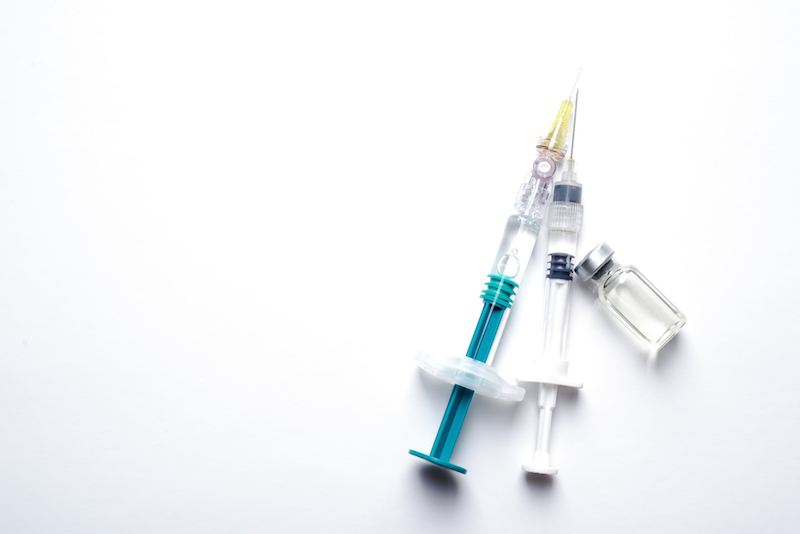Heroin Vaccine Could Turn Body's Defenses Against the Drug

Get the world’s most fascinating discoveries delivered straight to your inbox.
You are now subscribed
Your newsletter sign-up was successful
Want to add more newsletters?

Delivered Daily
Daily Newsletter
Sign up for the latest discoveries, groundbreaking research and fascinating breakthroughs that impact you and the wider world direct to your inbox.

Once a week
Life's Little Mysteries
Feed your curiosity with an exclusive mystery every week, solved with science and delivered direct to your inbox before it's seen anywhere else.

Once a week
How It Works
Sign up to our free science & technology newsletter for your weekly fix of fascinating articles, quick quizzes, amazing images, and more

Delivered daily
Space.com Newsletter
Breaking space news, the latest updates on rocket launches, skywatching events and more!

Once a month
Watch This Space
Sign up to our monthly entertainment newsletter to keep up with all our coverage of the latest sci-fi and space movies, tv shows, games and books.

Once a week
Night Sky This Week
Discover this week's must-see night sky events, moon phases, and stunning astrophotos. Sign up for our skywatching newsletter and explore the universe with us!
Join the club
Get full access to premium articles, exclusive features and a growing list of member rewards.
As heroin-related deaths soar in the United States, a group of researchers said they may be one step closer to developing a vaccine that could block the drug's addictive high.
The vaccine is the first of its kind shown to be effective in monkeys, paving the way to human clinical trials, said the researchers at The Scripps Research Institute (TSRI) who developed the treatment.
"The vaccine sequesters the psychoactive molecules that heroin produces and prevents distribution to the brain," said Paul Bremer, a graduate student at TSRI and first author of a study about the vaccine. The study was published June 2 in the Journal of the American Chemical Society. "It essentially uses your body's own natural defenses to neutralize the drug."
Heroin produces a high by activating the opioid receptors in the nervous system, triggering feelings of euphoria. The danger is that the drug can also cause the body's systems to become too relaxed, causing a slowdown in breathing. A common cause of death among people who overdose on heroin is respiratory arrest. That is, the person stops breathing and dies. [11 Facts About Heroin]
The Centers for Disease Control and Prevention (CDC) reports that heroin-related deaths in the U.S. more than quadrupled between 2010 and 2015, killing nearly 13,000 people in 2015.
The new vaccine is designed to mimic part of the heroin molecule, and train the immune system to recognize heroin as a foreign body to fend off, as it would a virus. This way, the body's own antibodies block the heroin and prevent a person who uses the drug from feeling a high.
Hopefully, this would discourage users from taking the drug again, the researchers said.
Get the world’s most fascinating discoveries delivered straight to your inbox.
"To put it simply, vaccines have saved more lives in the last 50 years than any other therapeutic — period," said study leader Kim Janda, a chemistry professor at TSRI.
Janda's team has been working on a heroin vaccine for more than eight years and had already successfully tested the vaccine on rodents. In the most recent trial, the researchers gave three doses of heroin vaccine to four rhesus monkeysat Virginia Commonwealth University.
The trials showed the vaccine worked to suppress heroin's effects in the monkeys, the study said. What's more, two of the four monkeys who had received the vaccine for a more basic pilot study seven months earlier showed an increased resistance to heroin's high with the subsequent doses of the vaccine.
"That was promising," because other experimental vaccines that are aimed at preventing drug users from feeling high show a decrease in response over time, Bremer told Live Science. "So, we were happy to see if we keep vaccinating them a year or two years out, hopefully the response will only get greater."
Currently, drugs like methadone and buprenorphine can help opioid users fend off cravings. Another drug, naltrexone (branded as Vivitrol), given as a monthly shot, can neutralize heroin's high. But the newly tested vaccine could be less expensive and could have fewer side effects than those drug options, since it uses the body's own immune system to neutralize heroin, the researchers said. [America's Opioid-Use Epidemic: 5 Startling Facts]
However, a heroin vaccine would not be a "magic bullet" on its own against the heroin crisis, Janda stressed. He said he is not suggesting that everyone receive the vaccine to prevent addiction. Also, heroin users must first be willing to seek help and try the vaccine, he added.
A potential downside of the vaccine is that it would not help in suppressing people's cravings for a high during withdrawal, and so users might be tempted to turn to other drugs, Janda said. Use of synthetic opioids has surged in recent years, according to the CDC. One illicitly manufactured drug that might be used for that purpose is fentanyl, a painkiller that's 50 to 500 times more potent than morphine, according to the National Institute on Drug Abuse. Drug dealers often cut heroin with fentanyl, a combination that's much more lethal than heroin alone.
Janda's team has also been working on a vaccine for fentanyl and has shown that this vaccine is effective in rodents. The idea is, at some point, to combine a heroin and fentanyl vaccine into a single shot, Bremer said.
"Combination vaccines seem to work," Bremer said.
For now, the Scripps team is in talks with biotech companies to develop a human clinical trial for the heroin vaccine.
"I hope the vaccine will be useful in conjunction with other drugs," Janda told Live Science. "While there are treatments out there already, I think we need to look at other ways of fighting this problem. This could be another piece of the puzzle."
Originally published on Live Science.

 Live Science Plus
Live Science Plus











